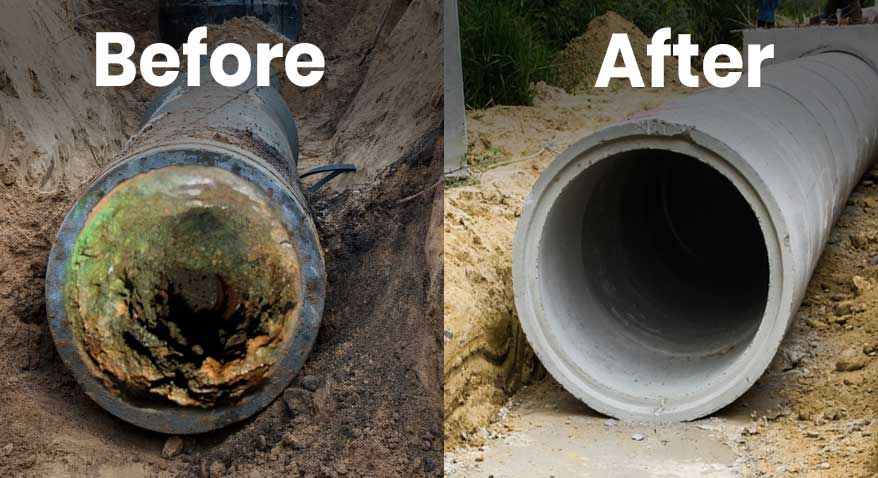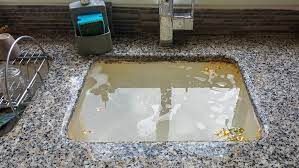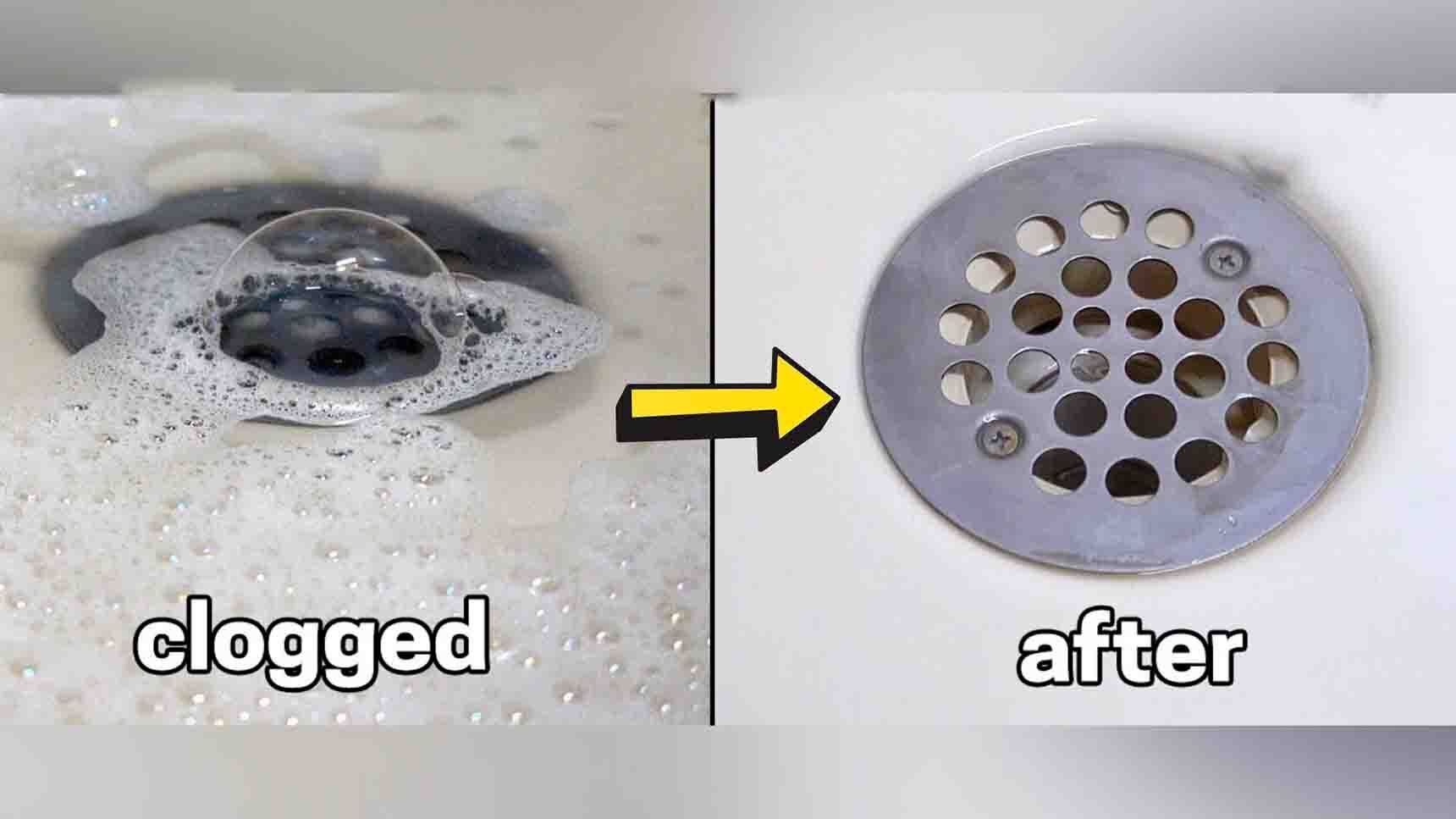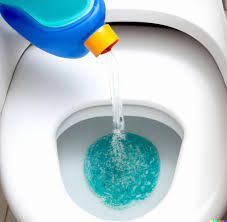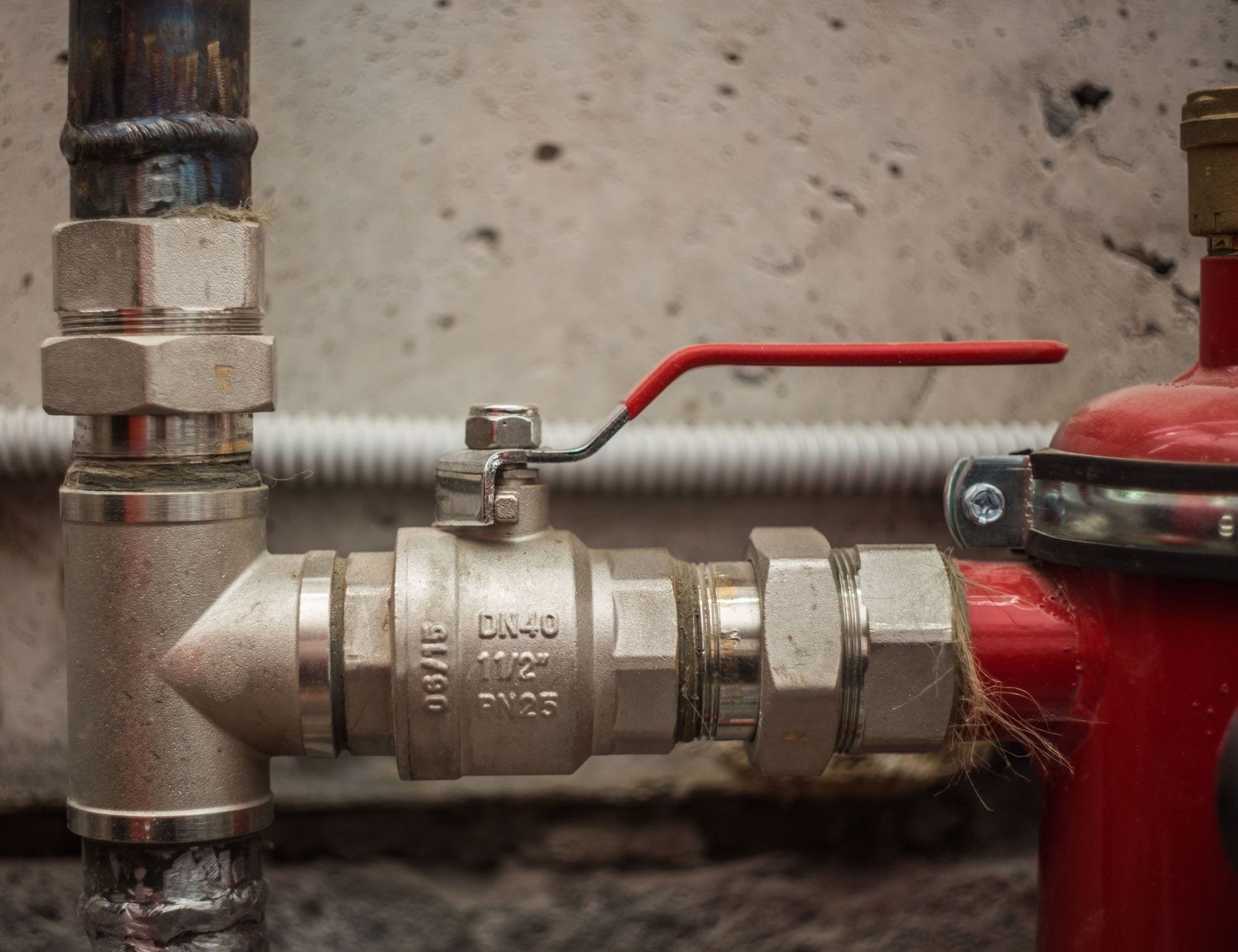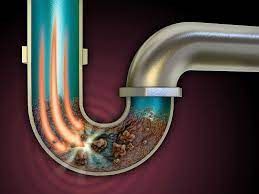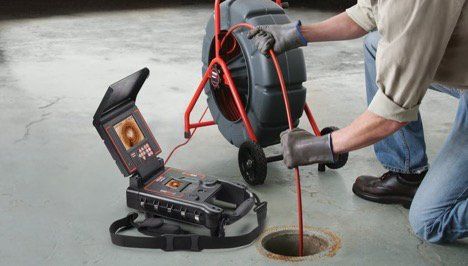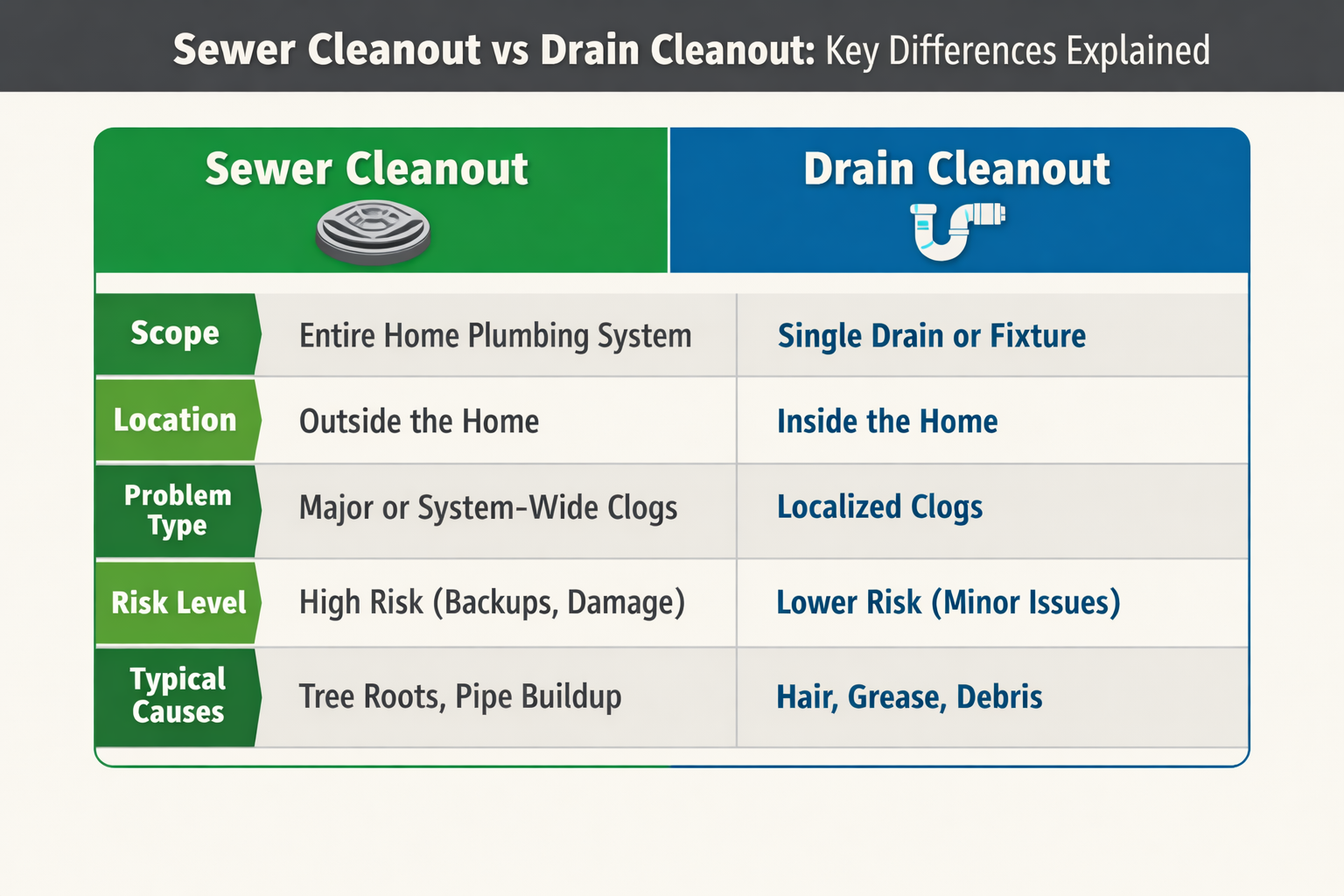What you need to know about your Denver homes plumbing pipes & sewer lines if it was built before 1978?
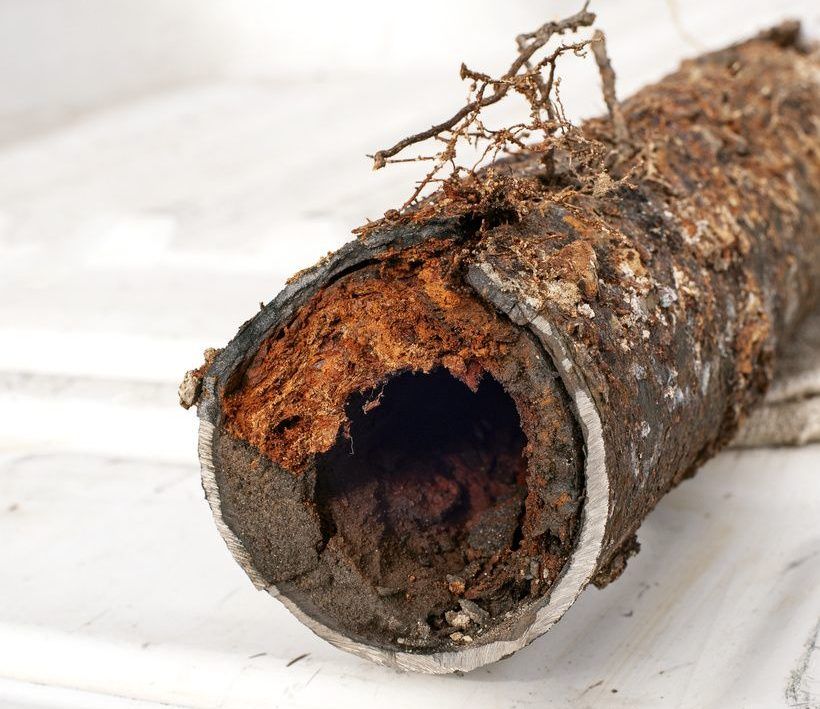
Do you live in a house that was built before the 1970s? Your plumbing & sewer pipes are probably made of cast iron, and you should check them for damage. Your pipes may be hidden underground or in the basement, but an ounce of prevention will be worth a pound of cure. You & your family don’t want to be forced to move out of your Denver home due to a sewage backup.
Many Denver homes built before 1978 still rely on outdated plumbing pipes and sewer lines that were common at the time but are now prone to failure. Understanding the materials used in old plumbing pipes in Denver can help homeowners plan maintenance, repairs, or a full sewer line replacement before emergencies occur.
What Pipes Were Used in Denver Homes Built Before 1978?
Many
old plumbing pipes in Denver were installed long before modern materials and building standards were in place. The type of pipe in your home plays a major role in the likelihood of failure.
Common Pipe Materials Found in Older Denver Homes
- Clay Sewer Pipes
Clay sewer pipes were widely used in Denver homes built before the 1960s. While durable initially, clay sewer pipes in Denver are especially vulnerable to cracking, soil movement, and tree root intrusion.
- Cast Iron Pipes
Cast-iron pipes in Denver were widely used for both plumbing and sewer lines. Over time, these pipes corrode internally, restricting flow and leading to frequent backups and leaks.
- Galvanized Steel Plumbing Pipes
Many older homes still have galvanized plumbing pipes, which corrode from the inside out, causing low water pressure, discolored water, and hidden leaks.
- Orangeburg Pipes
Orangeburg sewer pipes in Denver (made from wood fiber and tar) were installed from the 1940s through the early 1970s. These pipes are prone to collapse and are among the most common reasons for sewer line replacement in Denver homes built before 1978.
- Polybutylene Pipes
Some homes built between 1978 and the mid-1990s contain polybutylene pipes, which are now banned due to their high failure rate and susceptibility to leaks.
Why Pipe Material Matters in Denver
Denver’s expansive clay soil, freeze-thaw cycles, and mature trees place extra stress on
old sewer pipes in Denver. Homes with outdated materials are at higher risk of sewer backups, foundation damage, and costly emergency repairs.
What kind of plumbing was used in 1978?
Full or Partial Polybutylene (PB)
Polybutylene is a plastic resin used extensively in plumbing pipes from 1978 to 1995. However, this type of piping began to fail, causing significant damage to homeowners' homes.
What kind of plumbing pipes were used in the 70s?
Plastic. Plastic plumbing pipes, including ABS and PVC, became widely used in residential construction in the 1970s.
What year did they stop using polybutylene pipes?
1995
Polybutylene (often abbreviated as PB) is a plastic used in residential plumbing systems from 1978 to 1995. Some experts believe as many as 10 million homes were built with these pipes.
What year did plumbers start using PVC?
PVC pipe began to be manufactured in the 1940s and was widely used for Drain-Waste-Vent piping during the reconstruction of Germany and Japan following WWII. In the 1950s, plastics manufacturers in Western Europe and Japan began producing acrylonitrile butadiene styrene (ABS) pipe.
Why Old Pipe Materials Are a Bigger Issue in Denver
Denver’s expansive clay soil, freeze-thaw cycles, and shifting ground place additional stress on
existing sewer pipes. These environmental factors accelerate cracking, joint separation, and root intrusion, making proactive inspections especially important.
After 25 years, cast iron pipes are prone to corrosion and will start deteriorating.
Wear and tear is normal & expected in residential plumbing systems, but it may be time to replace cast-iron drain pipes after just 25 years. Cast Iron waste pipes should last 50-100 years with proper care; however, they can deteriorate after short periods without maintenance. This means homeowners must conduct routine inspections of their home's plumbing & sewer line infrastructure every year.
An estimated 76 million homes in America have cast-iron pipes that must be replaced. These 76 million homes are at risk of severe plumbing problems. At a low estimated average of $10,000 per home, we are talking about $760 billion in damages and repairs.
What happens to cast iron pipes over time?
Cast iron pipes, while durable, do fail over time. They can develop rust, which slows water drainage. Tree roots and cast iron do not make good partners. If you find galvanized or cast-iron pipes in your home, don't panic and don't start tearing out the plumbing.
Signs of Sewer Line Failure in Older Denver Homes
Many homeowners don’t realize their Denver sewer lines are failing until major damage occurs. Early detection can prevent emergencies.
Common Warning Signs
- Slow drains throughout the home
- Frequent clogs in multiple fixtures
- Sewage odors inside or outside
- Soggy or sunken yard areas
- Tree roots are invading sewer pipes
- Recurring drain backups
A
Denver sewer camera inspection is the most reliable way to identify issues before a full
sewer line replacement in Denver is needed.
Symptoms of Water & Sewer Pipe Damage may include
· Slow pipe drains
· Clogs or backups
· Foul smells from sewer gases
· Pest infestation
· Rotted flooring
· Warped or separated wood floors
· Tinted (raised) floor tiles
· Loose or broken floor tiles
· Waterlogged flooring
· Water-stained floor tiles &grout
· Water-stained/discolored carpet or rug/mat
CONCERNED ABOUT THE PIPES IN YOUR HOME?
Call Drain Brain LLC Today @ 720-322-4845
Plumbing Pipe Corrosion in Denver
Underground waste pipes fail for a variety of reasons. One reason is external corrosion from soil-borne materials. Soil often contains high levels of acidity, stray electric currents, and toxins, all of which can cause cast iron pipes to rust. External rust is not necessarily a cause for concern, though it may indicate more serious problems in the internal piping.
With the recent rise in environmental awareness, many people are increasingly aware of how our waste pipes can fail. One common cause of failure is external corrosion from soil materials that often contain high levels of acidity or stray electric currents. This may indicate a need to upgrade your property's irrigation & sewer system if it has cast-iron plumbing fixtures, such as faucets and toilets.
Is Sulfuric acid corrosive to cast iron?
The corrosive wear rate of cast iron was found to peak at approximately 35 wt. The percentage of sulphuric acid increases with load and acid temperature.
Corrosion in pipes is a common issue caused by waste products in the system that build up hydrogen sulfide.
This creates an environment ideal for the formation of sulfuric acid, which rapidly corrodes cast-iron plumbing fixtures, including sewer connections and joints, as well as any other metal surface it contacts. Experts recommend checking the ingredients of any home drain cleaner before purchase, as many brands contain high concentrations of sulphuric acid, which can accelerate pipe corrosion.
Repair vs. Sewer Line Replacement in Denver
Not all sewer issues require full replacement, but older materials often limit repair options.
- Spot repairs may work for minor damage
- Trenchless sewer repair depends on pipe condition
- Full sewer line replacement in Denver is often recommended for Orangeburg, collapsed clay, or severely corroded cast iron pipes
Denver Plumbing Codes & Sewer Line Permits
Most sewer line repairs and replacements are regulated by Denver plumbing code.
- Permits are required for most sewer line replacements
- Trenchless sewer work may still require inspections
- All materials must meet current Denver code standards
- Licensed plumbers handle permitting and inspections
Drain Brain LLC is a family-owned sewer and drain company that has served the Denver, CO, and surrounding areas for nearly 10 years.
Drain Brain LLC are experts at repairing sewer lines and have the skills and equipment to perform residential and commercial sewer video camera inspection so that problems are detected fast.
This will help solve issues like leaking pipes, broken pipes, and other sewer dilemmas. Locating the exact causes of problems early saves clients numerous headaches.
For superior service, home and business owners can schedule an appointment by calling
Drain Brain LLC today
@
720-322-4845.
Old Plumbing Pipes In Denver, FAQ's
How can I tell what type of sewer pipe my Denver home has without digging?
Describe the item or answer the question so that site visitors who are interested get more information. You can emphasize this text with bullets, italics or bold, and add links.Are older sewer pipes in Denver more likely to collapse than crack?
Yes. Certain older materials commonly found in Denver homes—especially Orangeburg and clay sewer pipes—are more prone to deformation or collapse rather than simple cracking. Denver’s expansive clay soil and freeze-thaw cycles place uneven pressure on aging pipes, which can cause sections to flatten or cave in over time.
Can tree roots damage sewer lines even if there are no trees nearby?
Yes. Tree roots can travel long distances underground in search of moisture. In Denver neighborhoods with mature landscaping, roots from trees on neighboring properties or even public rights-of-way can infiltrate sewer lines through small cracks or joints, especially in older clay or cast iron pipes.
Why do older Denver homes experience sewer backups after heavy rain or snowmelt?
Older sewer lines are more vulnerable to ground saturation caused by heavy rain or snowmelt. When Denver soil expands with moisture, it can shift or compress aging pipes. Additionally, cracks or separated joints allow groundwater to enter the sewer line, overwhelming the system and increasing the risk of backups inside the home.
Is it common for Denver homes to have mixed pipe materials?
Yes. Many Denver homes built before 1978 have mixed plumbing systems, meaning different sections of the sewer or drain line are made from different materials due to past repairs or renovations. For example, a home may have cast iron inside, clay outside, and PVC added during a partial repair. Mixed materials can increase the risk of joint failure where materials connect.
Do sewer problems always start inside the house?
No. Many sewer issues begin underground and show no immediate indoor symptoms. Small cracks, root intrusion, or pipe sagging can exist for years before causing noticeable slow drains or backups. This is why routine inspections are especially valuable for older Denver homes, even when plumbing appears to be working normally.
Can old sewer pipes affect my home’s foundation?
Yes. Leaking sewer lines can saturate soil around the foundation, leading to erosion, settling, or cracking over time. In Denver’s clay-heavy soil, excess moisture from a damaged sewer line can cause soil expansion, which may contribute to foundation movement or structural issues if left unaddressed.
Are sewer line issues covered by homeowner’s insurance in Denver?
In many cases, standard homeowner’s insurance does not cover damage caused by aging or deteriorating sewer pipes. Some policies may cover sudden damage but exclude wear-and-tear. Many Denver homeowners choose optional sewer or service line coverage for added protection. It’s best to review your policy or speak with your insurance provider.
How often should older sewer lines be inspected?
For Denver homes built before 1978, sewer camera inspections are often recommended every 2–3 years, even if no major symptoms are present. Regular inspections help identify early signs of deterioration, root intrusion, or alignment issues before they become emergencies.
Can sewer line problems reduce my home’s resale value?
Yes. Sewer line issues are a major concern during home inspections and can delay or derail a sale. Buyers are increasingly cautious with older homes, especially in Denver. Identifying and addressing sewer line problems proactively—or at least documenting their condition—can help protect property value and reduce negotiation issues.
Are sewer smells always a sign of a broken sewer line?
Not always, but persistent sewer odors should never be ignored. While smells can sometimes come from dry traps or venting issues, recurring odors may indicate cracks, joint separation, or blockages in older sewer pipes. A professional evaluation is the safest way to determine the source.
What time of year is worst for sewer line problems in Denver?
Late winter and early spring are common trouble periods due to freeze-thaw cycles and snowmelt saturating the soil. These conditions place additional stress on aging sewer lines and often reveal existing weaknesses in older pipes.
